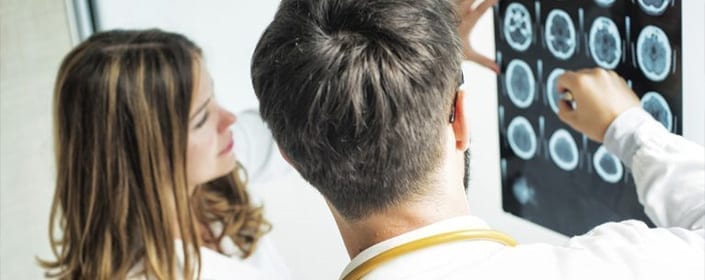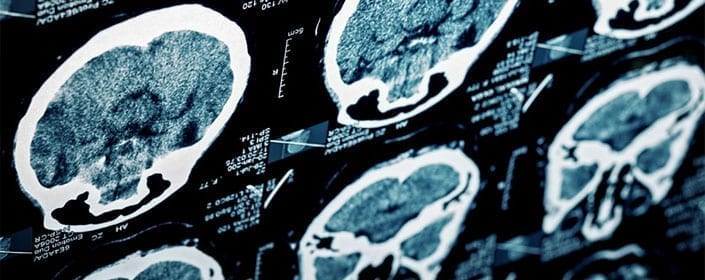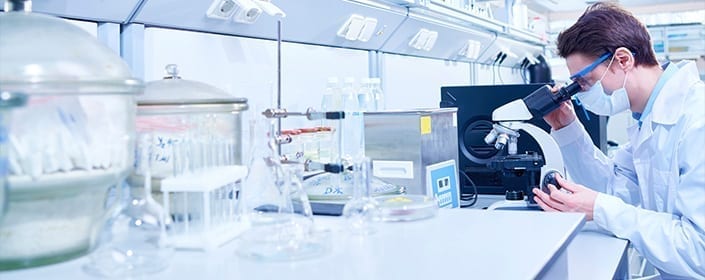
by admin | Oct 20, 2016 | Studies
After following the patients for an average of 2.5 years after their treatment, the scientists concluded that the treatment was safe for this group. No serious adverse side effects were observed in any of the patients.
Researchers in Poland have just published a study aimed at determining whether the use of a particular type of stem cell – known as adipose-derived (from fat tissue) mesenchymal stem cells (ASC’s) is safe for patients. The scientists studied 145 patients, giving them a total of almost 500 injections of ASC’s. After following the patients for an average of 2.5 years after their treatment, the scientists concluded that the treatment was safe for this group and no serious adverse side effects were observed in any of the patients.
Mesenchymal stem cells are regularly transplanted in patients, and hundreds of clinical trials using these cells are underway in the hopes of continuing to identify promising therapeutic options for patients suffering from a wide range of diseases. These cells tend to be collected from either the bone marrow or adipose tissue. Compared to bone marrow, adipose tissue provide the advantage of higher cell numbers, but the safety of using ASC’s from adipose tissue has required confirming the safety and effectiveness of these cells for treatments.
The study undertaken in Poland involved injecting patients with ASC’s as a way to treat orthopedic or neurologic disease. The majority of these patients suffered from injuries involving cartilage, bone, or tendons. The remaining 15 patients had either relapsing-remitting or secondary progressive multiple sclerosis. The only patients that were specifically excluded from the study were those who also suffered from cancer or who were pregnant.
Because safety was the focus of this study, the researchers did not comprehensively study the effect of ASC’s on the patients’ diseases or injuries. Evaluating the long-term effects of ASC transplantation on these patients would require observing the patients over a longer time frame and was outside of the scope of this particular investigation. Nonetheless, the researchers noted that in the time that they monitored these patients, the patients’ clinical symptoms either improved or were not significantly different from the control group, who did not undergo the ASC therapy. No worsening of symptoms was reported.
As more research is done to understand the details of how ASC treatments impact patients, we will gain more information into how safe the treatments are and in what context. Studies continue to show promise for the safety of ASC treatments and the potential to grow this line of therapy into an effective strategy for patients.
Learn more about how adipose stem cells are used to treat brain injury here.
Reference
Siennicka, K. et al. (2016). Adipose-derived cells (stromal vascular fraction) transplanted for orthopedical or neurologcial purposes: are they safe enough? Stem Cells International. http://dx.doi.org/10.1155/2016/5762916

by admin | Sep 16, 2016 | Studies
Multiple sclerosis (MS) involves the deterioration of the nervous system as a result of immune attack. Because MS is thought to be a disorder that is mediated by the immune system, treatments developed to combat the disorder often involve inhibiting the immune system to keep it from successfully attacking the brain and spinal cord. However, though some of these therapies can slow MS, most patients reach a point where therapy stops working, and the disease inevitably progresses. In a paper published in the esteemed Journal of the American Medical Association (JAMA) in 2015, researchers show that a new approach to MS therapy involving stem cell transplantation improves the symptoms associated with MS, as well as quality of life for patients, and that these improvements are sustained over a 6 month follow up period.
Unlike traditional MS therapies that suppress the immune system, autologous hematopoietic stem cell transplantation (HSCT) is aimed at instead resetting the immune system. It involves storing stem cells from the patient’s blood or bone marrow while the patient’s remaining immune cells are attacked with chemotherapy. The stem cells are then reintroduced back into the patient’s blood and eventually produce new cells that repopulate the immune system.
Prior to this publication, a nonmyeloablative regimen of HSCT shown to improve neurological symptoms, as well as quality of life in over 20 patients at Northwestern University in Chicago. In the current study, researchers analyzed all of the patients who underwent this therapy at Northwestern and included a follow-up analysis of these patients 6 months after the conclusion of their treatment regimen. This research took place over about 10 years and involved over 100 people with MS.
The patients in the study were treated with nonmyeloblative HSCT over approximately 10 days in the hospital and evaluated in terms of outcomes related to treatment safety, changes in disability, relapses, and disease activity measured by magnetic resonance imaging (MRI). The treatment appeared relatively safe, causing no deaths or serious infections. However, 7 people in the study developed thyroid disorders, and 7 people developed immune-mediated thrombocytopenia, a bleeding disorder that can be serious.
When looking at all the patients treated in the study, the researchers found that half of them had improved disability scores 2 years after treatment, and 64% showed this improvement 4 years after treatment. Upon closer analysis, the researchers found that though those with secondary-progressive MS and those who had the disease for more than 10 years did not show improvements in their disability scores, those with relapsing-remitting MS and those who had the disease for less than 10 years did show improvements.
While this study was an observational one, without a control group, it demonstrates the significant potential for stem cell therapies in treating MS. Randomized control trials, which are currently supported by the National MS Society, will help clarify how exactly stem cell therapies can help those with MS and other neurological conditions.
To learn more about how stem cells can help treat Multiple Sclerosis click here.
Reference
Burt, R.K. (2015). Association of Nonmyeloablative Hematopoietic Stem Cell Transplantation With Neurological Disability in Patients With Relapsing-Remitting Multiple Sclerosis. JAMA, 313(2), 275-284.

by admin | Aug 8, 2016 | Studies
Traumatic brain injury (TBI) often leads to devastating results not because of the initial blow to the head, but instead because of the inflammatory processes that follow as a consequence of the hit. Thus, preventing or slowing the inflammation that occurs after the trauma to the head can vastly improve patient outcomes. Hyperbaric oxygen therapy (HBOT) has been shown in animal models to reduce this inflammation and thereby protect the brain from significant damage. Now, scientists help clarify exactly how HBOT has this advantageous effect on the brain. This new research was recently published in the journal Neuroimmunomodulation.
The scientists used four groups of mice: one without injury and without HBOT, one without injury with HBOT, one with TBI without HBOT, and one with TBI with HBOT. They expected that the final group, which had both TBI and the HBOT intervention would show significant differences in performance and in physiology before and after the treatment, whereas the other groups tested at different time points would not show these differences.
As expected, the researchers found that HBOT led to better motor performance and lower brain swelling, known as edema, in the group of mice that had TBI. After HBOT, these mice also had lower protein expression of elements that contribute to inflammation. Specifically, the expression of inflammasome components, IL-1b, IL-18, and high-mobility group box 1 were all reduced by HBOT following TBI.
These findings corroborate previous findings that HBOT is a beneficial intervention for TBI and help explain exactly how HBOT confers its positive impact on a traumatically injured brain. Future research will help identify the best ways to use this therapy to help patients who suffer trauma to the head.
Click here to learn more about how Hyperbaric Oxygen therapy helps enhance the body’s natural healing process.
Reference
Geng, F., Ma, Y., Xing, T., Zhuang, X., Zhu, J., & Yao, L. (2016). Effects of hyperbaric oxygen therapy on inflammasome signaling after traumatic brain injury. Neuroimmunomodulation. DOI: 10.1159/000445689

by admin | Jul 25, 2016 | Stem Cell Research, Studies
Research has pointed strongly toward autologous adipose tissue-derived mesencymal stem cells (AdMSC‘s) as a treatment option for a number of neurological diseases. There is growing evidence that these cells can successfully differentiate into neurons in the brain, thereby protecting the brain against certain diseases of the central nervous system. Adipose tissue is particularly attractive when seeking to use mesenchymal stem cells (MSC’s) because it is easy to retrieve MSCs in this type of tissue. Now, a case study published in the Journal of Medical Case Reports demonstrates how AdMSC‘s were successfully used to treat a patient suffering from progressive supranuclear palsy (PSP), a disorder closely related to Parkinson’s disease.
There are currently no good treatment options for PSP. Dopaminergic drugs that are used for Parkinson’s disease are often implemented with PSP patients because of clinical similarities in these diseases. However, the benefits are both minor and short-lived. As described in this case report, researchers successfully used a novel form of therapy on a 71-year old South Korean man with PSP.
The man was examined before his treatment and continually for six months afterwards. The AdMSC protocol improved the patient’s performance on the Progressive Supranuclear Palsy Rating Scale (PSPRS) and improved both his cognitive performance and his ability to conduct daily activities. In addition to the treatment’s efficacy, it also bore limited safety concerns, as mild fever and short-term elevated blood pressure were the only adverse side affects observed with the procedure.
The patient underwent four intrathecal and five intravenous infusions infusions of AdMSC’s to increase the chances of clinical efficacy. Specifically, the strategy of the intrathecal infusions was to increase the likelihood of getting the AdMSC’s into the central nervous system. However, because the intrathecal cavity is narrow, the dosage that can be achieved through this route is limited. Thus, intravenous injections were administered as a way to increase the dosage amount. Though this success of AdMSC’s administration in PSP is just the beginning, it represents great potential for the use of stem cells in this rare but deadly disorder.
To learn more about the safety of adipose stem cell procedure, click here.
Reference
Choi, S.W., Park, K.B., Woo, S.K., Kang, S.K., & Ra, J.C. (2014). Treatment of progressive supranuclear palsy with autologous adipose tissue-derived mesenchymal stem cells: a case report. Journal of Medical Case Reports, 8(87), 1-5.

by admin | May 9, 2016 | Studies
Both Hyperbaric Oxygen (HBO) treatment and Mesenchymal Stem Cells (MSC‘s) have been used as interventions for patients suffering from Traumatic Brain Injury (TBI). Though each of these therapeutic approaches can confer benefits to patients, researchers have shown that combining the two techniques can yield better results for this population of patients than either method can achieve alone. The scientists published their findings in Neural Regeneration Research earlier this year.
The transplantation of MSC‘s and the use of HBO are each effective in treating TBI for different reasons. Mesenchymal stem cells can proliferate rapidly, differentiate into many different types of cells, and do not tend to cause adverse immune reactions. While HBO treatment can enhance the brain’s aerobic metabolism, providing brain tissue with more oxygen. All of these effects are helpful after TBI has occurred. However, MSC‘s alone can be limiting in their therapeutic potential because only a fraction of those that are transplanted differentiate into mature brain cells. Because hyperbaric oxygen treatment both protects injured tissue and also supports the differentiation and migration of MSC‘s, researchers hypothesized that combining the therapies would improve lead to better neurological and cognitive outcomes following TBI than either treatment would alone.
To test their idea, the scientists induced TBI in rats to establish a rat model of the condition. They then treated one group of rats with just HBO, transplanted MSC‘s in another group of rats that did not undergo HBO, and used both interventions in a final group of rats. The researchers then looked both at physiological markers associated with TBI, as well as cognitive performance on a learning and memory task.
The results showed that rats that underwent both MSC‘s transplantation and HBO had better neurological outcomes and better cognitive performance scores than rats that endured only one type of treatment. Given these promising findings in an animal model of TBI, future research will likely address the translatability of these findings to humans. Now that a proof-of-concept exercise has been successful, there is significant support for the potential of this combination treatment regimen to help people who experience TBI.
Reference
Zhou, H. X., Liu, Z. G., Liu, X. J., & Chen, Q. X. (2016). Umbilical cord-derived mesenchymal stem cell transplantation combined with hyperbaric oxygen treatment for repair of traumatic brain injury. Neural Regen Res, 11(1), 107-113. doi: 10.4103/1673-5374.175054

by admin | Mar 21, 2016 | Parkinson's Disease, Studies
Though research has shown that stem cells are therapeutic candidates for neurodegenerative diseases like Parkinson’s disease, scientists have been working on overcoming the challenges associated with effectively delivering these cells to the brain. A recent study, published in the journal Rejuvenation Research, demonstrated that intranasal delivery of stem cells provided both physiological and behavioral benefits in a rat model of Parkinson’s disease.
Once researchers had determined that stem cells could help patients suffering from brain disorders, a number of interventions were attempted. Surgical transplantation, though invasive, has been a popular method for direct stem cell delivery to the brain. However, this technique often causes local trauma and also tends to leads to problematic immune responses that make the transplant ineffective. Delivering cells through veins or arteries is a less invasive method for providing the brain with these cells, but this method can be less effective, with the cells sometimes traveling to organs other than the brain and becoming trapped there.
In their article, Therapeutic Efficacy of Intranasally Delivered Mesenchymal Stem Cells in a Rat Model of Parkinson Disease, Lusine Danielyan and colleagues describe their previous work that showed that intranasal application of mesenchymal stem cells lead to the successful integration of these cells in parts of the brain that are critical in Parkinson’s disease. Building on this work, they now show that intransal delivery of stem cells is not only feasible but has practical clinical applications. In a rat model of Parkinson’s disease, rats normally experience dopamine depletion in certain areas of the barin, as well as increased levels of inflammatory cytokines, which are cells of the immune system. Intransal administration of stem cells prevented both of these effects in the rat model.
Of particular significance is that researchers did more than show that intranasal delivery of stem cells leads to physiological changes that are consistent with effective Parkinson’s disease therapy. They also showed that the technique had therapeutic behavioral effects. When intranasal administration of stem cells was applied to the rat model of Parkinson’s dieases, motor function improved. As motor dysfunction is a hallmark of Parkinson’s disease, this finding demonstrates the significant promise that intransal delivery of stem cells holds for treating Parkinson’s disease.
Reference
Danielyan, L., Schafer, R., von Ameln-Mayerhofer, A., Bernhard, F., Verleysdonk, S., Buadze, M., . . . Frey, W. H., 2nd. (2011). Therapeutic efficacy of intranasally delivered mesenchymal stem cells in a rat model of Parkinson disease. Rejuvenation Res, 14(1), 3-16. doi: 10.1089/rej.2010.1130







 St. Petersburg, Florida
St. Petersburg, Florida
